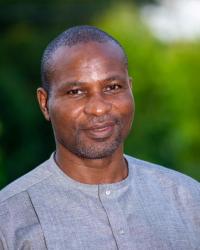Basile Ndjio is professor of anthropology at the University of Douala and currently a Senior Research Fellow at MIASA. He is a former FRIAS Senior Research Fellow (2021-2022) and Marie Curie Fellow of the European Union at the Freiburg Institute for Advanced Studies (FRIAS) Princeton Institute for Advanced Studies(IAS), The Netherlands Institute for Advanced Studies (NIAS). He is also affiliated with the Africa Centre for Transregional Research in Freiburg. Prof. Ndjio has been trained in both sociology and anthropology at the University of Yaoundé in Cameroon and the University of Amsterdam, and has published intensely on urban popular culture; urban fashion; gender and sexuality; Chinese sex labour migration; migration and diasporic conditions; West and West African organized crime; urban African queer studies; urban citizenship, governance and the politics of belonging. His most recent works include: (with Kerstin Pinther and Kristin Kastner) Fashionscapes: Histories, Materialities and Aesthetic Practices in the Afropolis (Bloomsbury 2022), “Garçons manqués and Femmes fortes: two ambivalent figures of butch lesbianism in women’s football in Cameroon (African Studies Review 2022); “The Nation and its Racial Other: Blackness, Racism and Racial Capitalism in the Netherlands” (Berghahn Journals, 2022); “Death without mourning: homosexuality, homo sacer, and bearable loss in Cameroon” (Africa/ International African Institute, 2020); He has just completed a monograph on sexual politics in Central Africa (under review with the Cambridge University Press) and is currently writing a monograph on Chinese sex labour migration to Central and West Africa.
You are currently viewing a placeholder content from X. To access the actual content, click the button below. Please note that doing so will share data with third-party providers.
More Information



